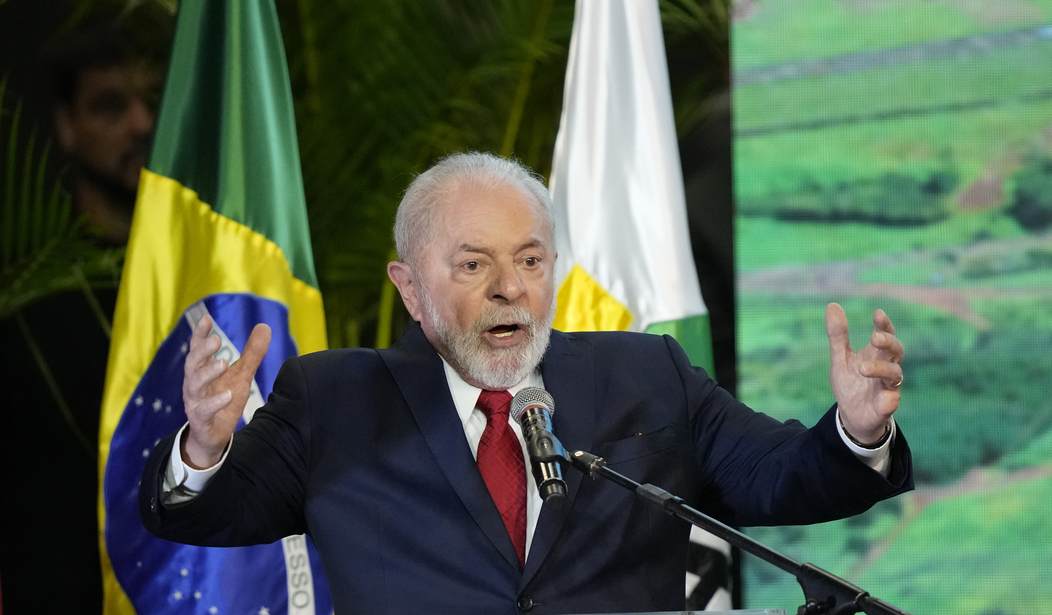For most of the two decades that I’ve been covering Second Amendment issues, Brazil has been a cautionary tale about the effectiveness (or lack thereof) of strict gun control laws. The country has long placed tight restrictions on legal gun owners, though the laws have had little effect on the country’s homicide rate, which is one of the highest in the world.
The country’s gun control laws were relaxed somewhat under the administration of President Jair Bolsonaro, who issued dozens of executive decrees designed to allow more Brazilians the ability to keep and bear arms for recreation, hunting, and self-defense. But when Luiz Inácio Lula da Silva took office three months ago, one of his first priorities was to crack down on the growing number of legal gun owners; rescinding Bolsonaro’s edicts and introducing one of his own that caps the number of firearms lawful gun owners are allowed to possess to three, down from six. The next step for da Silva? Requiring gun owners to first register those newly-acquired arms, and then hand them over to the state in a compensated confiscation scheme.
To determine just how many guns came into circulation under his predecessor, Mr. da Silva has given owners until March 31 to take any guns they bought under looser rules since May 2019 to the nearest police station for inspection and registration in a government database.
In April, Mr. da Silva will pass a presidential decree forcing owners to sell firearms to the state that exceed the new three-per-person rule, or face arrest, Brazil’s justice minister, Flávio Dino, told The Wall Street Journal.
“Any gun that is not declared will be considered an illegal weapon…they’ll be committing a crime,” said Mr. Dino. According to the disarmament law, having illegal guns can lead to 2 to 4 years in prison plus a fine.
Only 60% of gun owners have complied with registering so far, according to government figures.
Despite da Silva’s insistence that “it’s time to put down the weapons” and that “guns kill and we choose life,” his crackdown on legal gun owners comes as the nation’s sky-high homicide rate is actually falling. Research from Violence Monitor found that homicides declined by 7% in 2021 to the lowest level in at least fourteen years, even as the number of lawfully possessed firearms was increasing.
Researchers point out multiple reasons for the reduction. Among them is the increasing “professionalization” of drug gangs, which have learned to compete with each other in less conflictual ways or created self-regulatory mechanisms to reduce casualties within their ranks.
But police forces have also become more effective in dealing with organized crime, with departments sharing more information and cooperating more consistently to reduce gangs’ means to control the drug trade from within the prison system.
During President Jair Bolsonaro’s presidency, the number of firearms in the hands of civilians doubled – but Violence Monitor researchers say that doesn’t have an effect on murder trends, though it may lead to a sharp increase in “circumstantial homicides”, such as those resulting from arguments in traffic, bars, and nightclubs.
That’s right. Murders declined while civilian gun ownership doubled, but the two have no correlation according to researchers. Instead, we’re supposed to believe it’s because Brazil’s drug gangs have learned to get along, and police have suddenly learned how to share information with each other.
Responsible gun owners aren’t the problem in Brazil any more than they’re the drivers of violence in the United States, and many of them say that da Silva’s anti-gun obsession is making the country a more dangerous place.
At São Paulo’s gun clubs, members say the risk of getting robbed is exactly why they need to protect themselves.
Gustavo Pazzini opened his first gun club in 2019 and now owns three—with 10,000 members, he says. He said he needs to stay open 24 hours a day to keep watch over his arsenal. He recalled how criminals had recently ransacked another club in the city when it was closed, stealing some 70 weapons.
“I thought to myself: if they steal our guns too, we’ll be bankrupt…so I started sleeping in the club.”
His members say that Mr. da Silva’s ban on carrying loaded weapons has made them a target, since criminals know that the weapons of people entering and exiting gun clubs will be empty.
“Nowadays, assailants wait at the doors,” said Ramenon de Oliveira Freitas, a retired federal police officer. “They know that members won’t be able to defend themselves.”
Which is just the way da Silva wants it. And this is the future that gun control groups in the United States want for us as well; draconian restrictions on responsible gun owners while criminal activity is explained away, ignored, or exploited in order to demand even more infringements on a fundamental right. That strategy has been an abject failure in terms of making Brazil a safer (or gun-free) place, but the gun control lobby is still intent on replicating these misfires much closer to home.









Join the conversation as a VIP Member